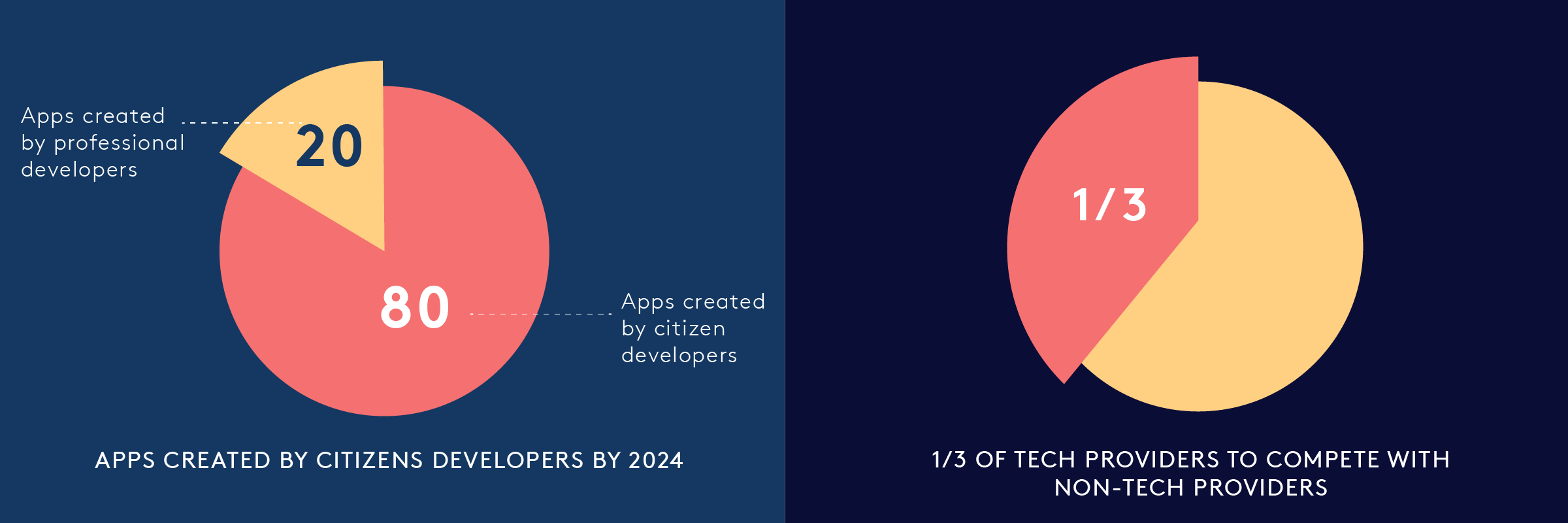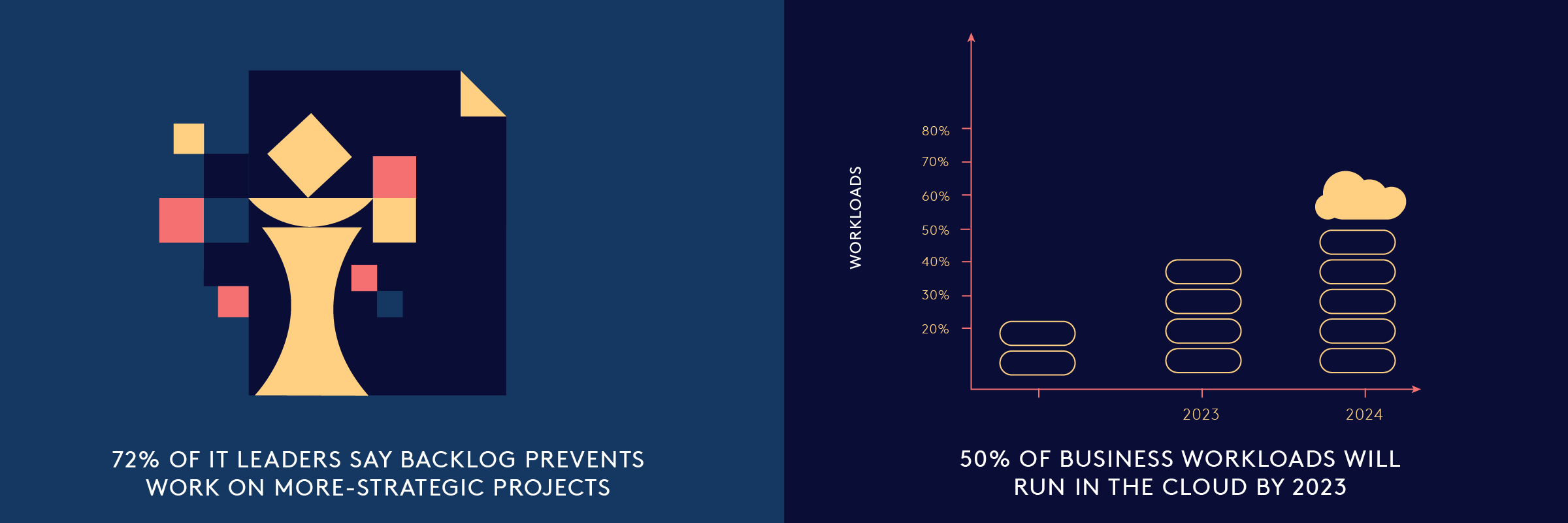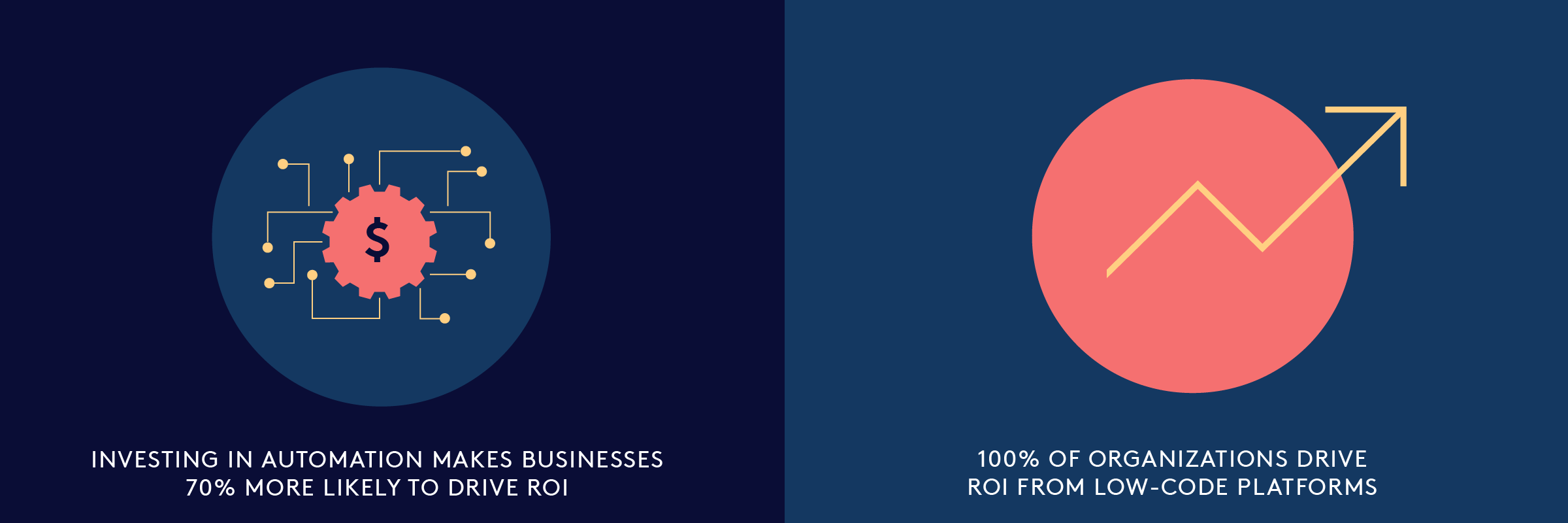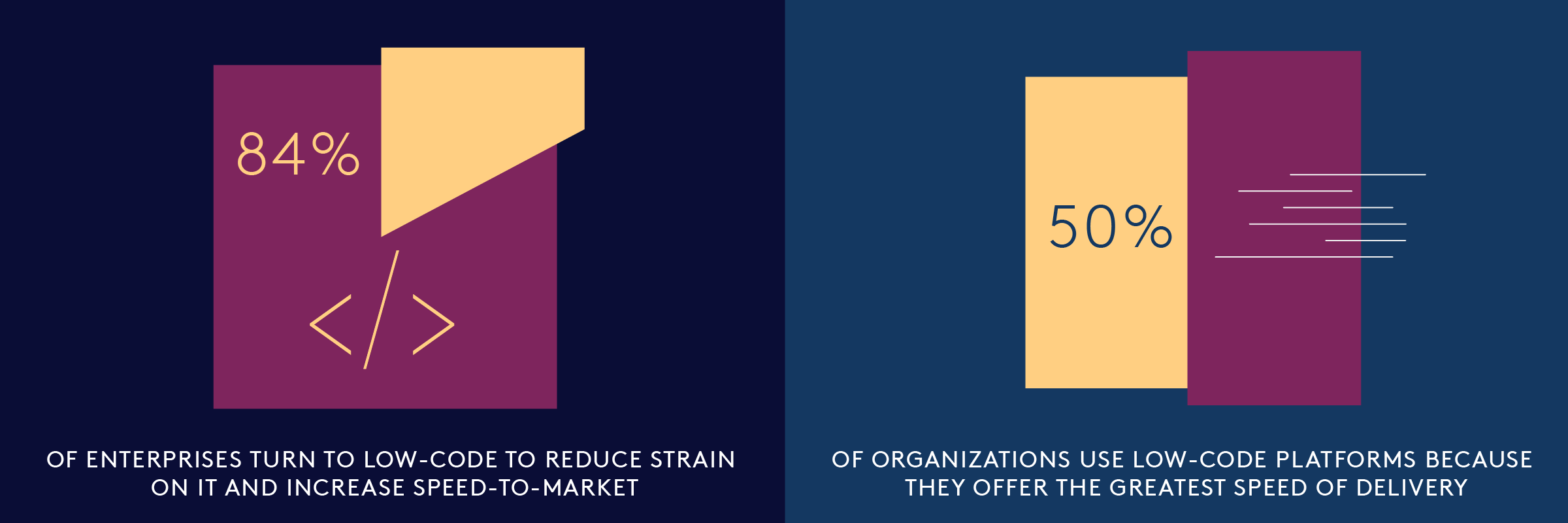Infographic: 6 key benefits to using a low-code automation platform


Andrew Park
Director of Content @ Tray.io
Learn how a low-code automation platform can help you reduce IT backlog, innovate faster, and more.
Low-code automation technology is enabling a new generation of knowledge workers to become “citizen developers” who self-service their own technical challenges across their tech stack, without having to seek costly resources from overburdened IT teams. As companies continue to acquire software, individual departments use as many as 200+ different applications(1). As a result, functional teams must increasingly focus on managing processes across their tools. More than 90% of surveyed respondents report that they regularly invest hours of manual work to manipulate and transfer data across their many tools(2).
Rather than charge IT teams with the endless burden of manually coding up API integrations and automated processes to improve execution across their tech stacks, smart companies are turning to low-code platforms to unsilo data across apps and orchestrate complex processes. In fact, the new generation of low-code platforms is giving every team across the organization, from line-of-business (LOB) teams in marketing to sales to services to HR to finance (and beyond) the power to stand up integrations and automated processes–not just technical experts.
By 2023, Gartner predicts that citizen developers will outnumber professional developers four-to-one(3). Dive into the six key benefits of using a low-code automation platform below:
6 key benefits to using a low-code automation platform
1. Faster pace of innovation
Low-code enables line-of-business (LOB) users to innovate on processes faster. According to Gartner, by 2024, citizen developers will have built 80% of products and services, and a third of tech providers will be competing with non-tech providers on similar projects(4).

2. Reduced IT project backlog
IT teams everywhere are struggling with an ever-increasing project backlog to support integration and process automation requests around an ever-increasing tech stack. Adding apps that inherently lack interoperability leads to more requests for integrations, more helpdesk tickets, and more technical debt. When organizations use low-code platforms, they implement solutions faster without having to rely on valuable IT resources(5)(6).

3. Ability to refocus on strategic tasks
Once teams start using low-code automation to expedite their processes and self-service their technical challenges, IT receives fewer helpdesk tickets in its backlog. As a result, IT can redirect its scarce and valuable resources on more-strategic projects, such as information security and digital transformation, especially as more organizations transition a larger percent of their workloads to the cloud(7)(8).

4. Optimized tech investments for higher tool ROI
As more teams adopt low-code automation platforms, they close functional gaps across their tech stack, particularly by setting up custom workflows that manipulate data to suit their unique individual use cases(9)(10).

5. Re-skilling with low-code: Employee retention + future of work
Companies everywhere are struggling to retain talent as a result of “The Great Resignation.” In particular, technical experts in IT are seeking greener pastures, not simply for a bigger paycheck or more flexibility around remote work. One of the leading causes of knowledge workers to leave for a new position is a lack of professional development, while one of the leading reasons to remain with a current employer is having opportunities to learn new professional skills.
More than 70% of enterprises in the US, China, and Europe are adopting low-code platforms(11). Providing the ability to add low-code technology to your team members’ skill sets not only accelerates innovation, but gives them a reason to stay(12)(13).

6. Adapting faster to change: Composable applications
Low-code automation gives organizations an edge in a rapidly-evolving marketplace. Low-code platforms accelerate technical innovation and improvements within IT organizations by offering faster-to-implement alternatives, such as visual, drag-and-drop interfaces, to hours of coding solutions by hand. They also democratize the building and implementation of new solutions across the organization, putting the power to innovate solutions directly into the hands of LOB practitioners.
As a result, the tech stacks of modern organizations approach Gartner’s composable enterprise model, which explains that businesses adapt to changing market conditions by implementing more speed through discovery, greater agility through modularity, better leadership through orchestration, and resilience through autonomy(14)(15).

References
1. CIODive.com, Enterprise app sprawl swells, with most apps outside of IT control 2. Tray.io, State of Automation report 3. VentureBeat.com, Gartner: Citizen developers will soon outnumber professional coders 4 to 1 4. Information-Age.com, Majority of tech products and services to be built outside of IT by 2024–Gartner 5. CIODive.com, IT projects trapped in backlog as demand rises 6. DevOps.com, A pandemic side effect: Rampant technical debt 7. ZDNet.com, These 5 CIO initiatives are not topping IT’s agenda - but they should be 8. Spiceworks Ziff Davis, The 2022 State of IT 9. CIODive.com, Spending 3% more on tech saves 29% in overall costs: report 10. G2.com, 32 low-code development statistics to know before adopting 11. Mendix, The state of low-code 2021: A look back, the light ahead 12. Entrepreneur.com, Why low-code platforms are the developer shortage solution people aren't talking about 13. StrategicCIO360, Why low-code is critical to reskilling today’s workforce 14. Gartner, Gartner keynote: The future of business is composable 15. Forrester + Appian, Large enterprises succeeding with low-code